- AED
- AFN
- ALL
- AMD
- ANG
- AUD
- AWG
- AZN
- BAM
- BBD
- BDT
- BIF
- BND
- BOB
- BSD
- BWP
- BZD
- CAD
- CDF
- CHF
- CNY
- CRC
- CVE
- CZK
- DJF
- DKK
- DOP
- DZD
- EGP
- ETB
- EUR
- FJD
- FKP
- GBP
- GMD
- GNF
- GTQ
- GYD
- HKD
- HNL
- HUF
- IDR
- ILS
- INR
- ISK
- JMD
- JPY
- KES
- KGS
- KHR
- KMF
- KRW
- KYD
- KZT
- LAK
- LBP
- LKR
- MAD
- MDL
- MKD
- MMK
- MNT
- MOP
- MUR
- MVR
- MWK
- MYR
- NGN
- NIO
- NPR
- NZD
- PEN
- PGK
- PHP
- PKR
- PLN
- PYG
- QAR
- RON
- RSD
- RWF
- SAR
- SBD
- SEK
- SGD
- SHP
- SLL
- STD
- THB
- TJS
- TOP
- TTD
- TWD
- TZS
- UAH
- UGX
- USD
- UYU
- UZS
- VND
- VUV
- WST
- XAF
- XCD
- XOF
- XPF
- YER
Why Do Cats Sleep in Litter Boxes?
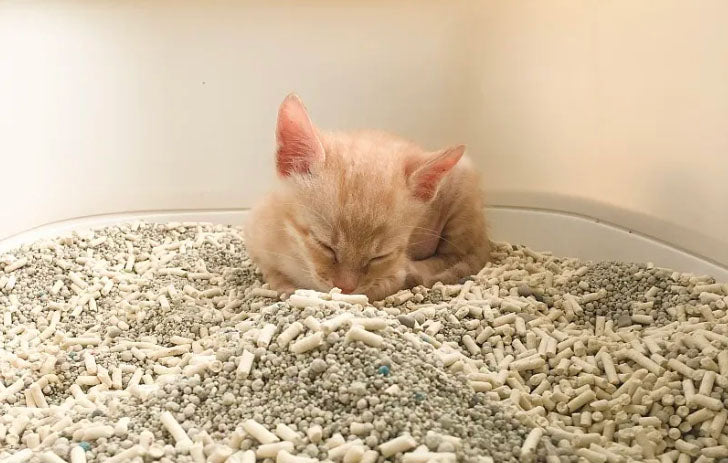
It's common to find cats napping in unusual places, sometimes on top of the fridge, sometimes in the cabinet. However, if your cat seems to prefer napping in their litter box, there could be behavioral or medical reasons behind it. It's important to investigate why they are spending so much time in that area.
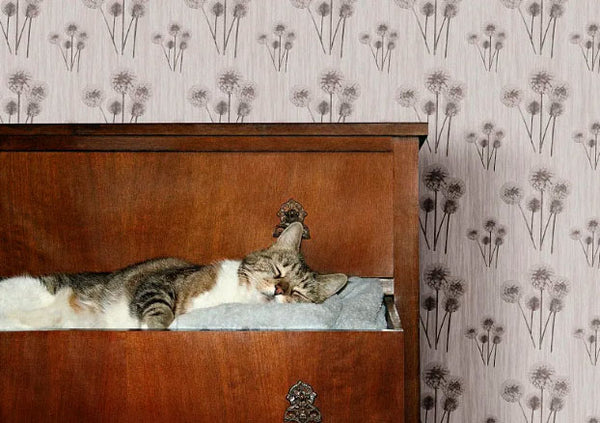
Why Do Cats Sleep in Litter Boxes?
Behavioral Causes
Suddenly Changes in Familiar Environment Put It Under Pressure
When a cat experiences a lot of stress, it may seek refuge and curl up in its litter box for reasons such as being taken to a pet hospital, or being unhappy with the owner or the room, having other cats in the house, etc. The litter box provides a convenient hiding place, makes it feel safer, and smells familiar to it. In addition, even if the room is filled with odors such as air fresheners and perfumes, the cat may under pressure of this smell and fall asleep in the litter box. So it is necessary to pay attention to environmental fragrances.
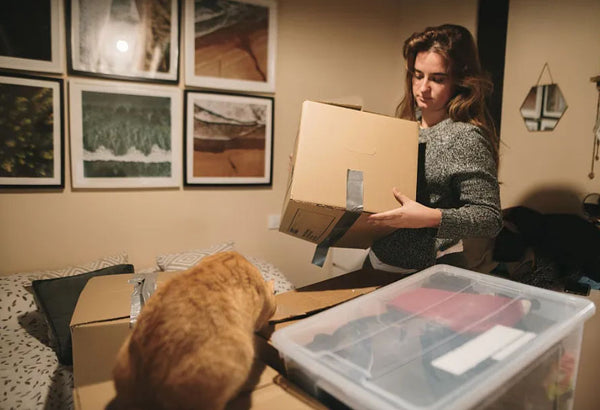
Cats Naturally Like Small and Hideaway Places
Cats are hunters, but they are also prey to the large animals. Animals have an instinct to avoid predators. In the wild, cats may face threats from wolves, eagles, wild dogs, foxes, and pythons. To stay safe, cats choose to occupy hideaway places. If they are unfamiliar with their environment, they usually sleep in a narrow place where no one can see them. If there is no such place in the house, the litter box may be considered the most convenient place for them.
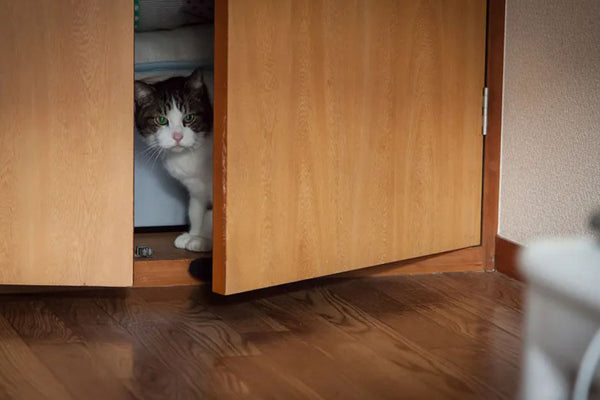
Feel Lonely
Did you know that cats may sleep in their litter box when they feel lonely? This behavior is often observed in kittens who have been separated from their mother or when their owner is away for a long period. They believed that staying in the litter box helped them feel more secure and calm.
Kittens Fail to Realize It Is a Place of Excretion
If the kitten does not initially recognize the litter box as a place of excretion, it may end up sleeping in the litter box. The litter box is covered with cat litter. Kittens can be curious and regard the litter box as a fun place to play. In order for the cat to use the litter box as intended, it is necessary for him to recognize the litter box as the designated spot for excretion.
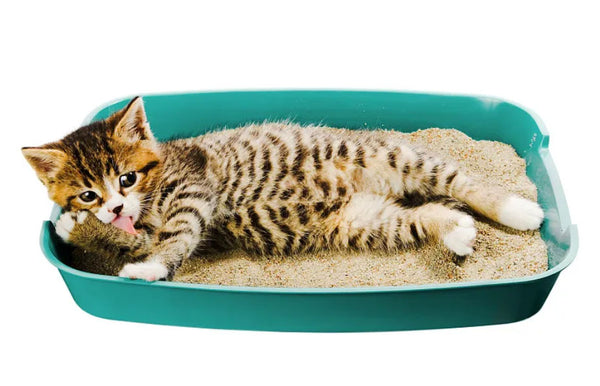
Medical Causes
Cats can get urinary tract infections, urinary crystal formation, and bladder stones frequently. If your cat urinates frequently, you have to take it seriously. These conditions can cause inflammation of the bladder lining, making it sensitive to even the smallest amount of urine. This discomfort can cause your cat to lounge in their litter box or cry out in pain. If you suspect a urethral blockage, it is vital to seek medical attention immediately from your veterinarian to prevent any life-threatening situations.
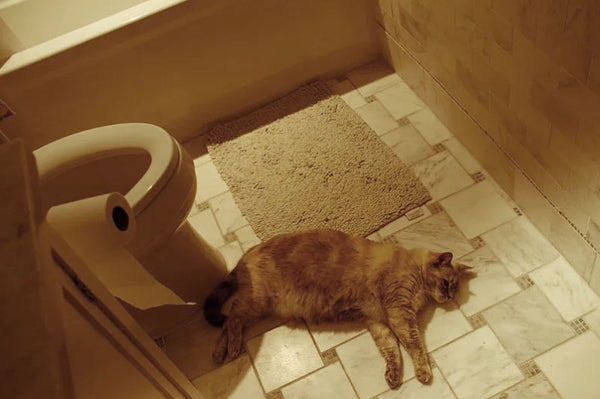
In the next post, Amosijoy will teach you how to prevent your cat from sleeping in the litter box.
No comments






0 comments